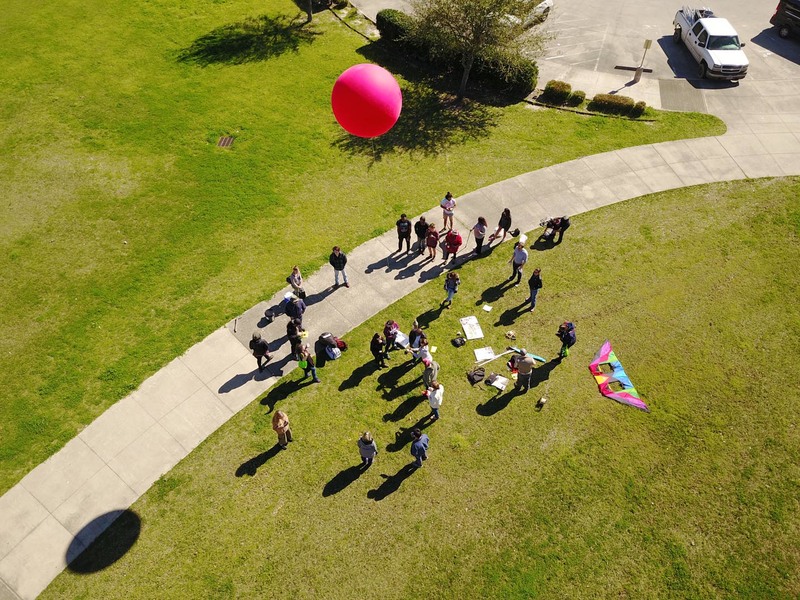
Education
Welcome
What Does Community Science Look Like in Your Classroom?
Public Lab defines community science as community-led scientific exploration and investigation to address community-defined questions, allowing for engagement in the entirety of the scientific process. Unlike traditional citizen science, Public Lab’s approach emphasizes local and traditional knowledge, community ownership of research, and working together in scalable networks to encourage collaborative learning and civic engagement.
Classroom community science projects are youth-led with an approach that emphasizes participant and community ownership of research, from question identification through analysis, and working together to encourage collaborative learning and civic engagement. After identifying their interests, students conduct research as they join the efforts of people and organizations already working on these issues and take the lead in aspects of study design, data collection, and analysis. The data collected from these student-designed projects supports community action and civic engagement.
Read more about integrating community science methodologies into your classroom here.
How Can You Get Involved?
We're looking to build a strong community of practice where educators of all experiences can share resources, knowledge, and lend a hand. Here are some ways that you can help build Public Lab's educational community
Join the Conversation
Get notified about new #education posts by subscribing to related tags. Click the button below, and subscribe to tags like "education", "classroom", "lesson", as well as other topics that you're interested in.
Try These Lessons in Your Classroom and Share Your Experience
After using one of these activities in person, let us know how it goes in the comments. We appreciate your feedback and encourage you to share how you modify the lesson to better fit your classroom.
- Classroom Community Science: An adaptable curricula for bringing student-led environmental projects into your classroom.
- Messages from the Mississippi: A 6-part series investigating microplastics in local bodies of water culminating in student artwork and advocacy.
- Wetlands Remote Sensing & Management: Hands on lesson plans to introduce students in grades 8-12 to oil spill cleanup, monitoring wetlands, and managing natural resources.
- Air Quality Class: An 8-week program in which students work with air quality sensors to monitor indoor air pollutants. Participants catalog and analyze the environmental air pollutant hazards that affect neighborhood homes and will share their findings with other community members
Activities
Here are some different activities particularly suited for use in the classroom:
Activities should include a materials list, costs and a step-by-step guide to construction with photos. Learn what makes a good activity here.
Questions
| Title | Author | Updated | Likes | Comments |
|---|---|---|---|---|
| How could we design a group activity around siting air sensors? | @warren | over 5 years ago | 1 | 9 |
| What are some of the challenges of implementing a problem-based learning curriculum in your classroom? | @mimiss | over 5 years ago | 0 | 2 |
| Have you tried any good DIY microscope dyes or stains? | @mimiss | almost 6 years ago | 1 | 5 |
| What are some of your favorite community science projects from around the world? | @mimiss | almost 6 years ago | 2 | 2 |
| Ideas for a DIY + Maker class for 6th graders | @Kmckeown | over 6 years ago | 2 | 3 |
| What are good resources for teaching middle school age children about water quality parameters? | @stevie | almost 7 years ago | 1 | 4 |
| What is the easiest and cheapest way to make a kite big enough to carry a camera? | @warren | about 7 years ago | 0 | 1 |
Resources
To learn more about the methods, successes, and challenges in developing these programs, check out our reports and evaluations from these funded projects:
2021 National Academy of Sciences Project Evaluation: Community Science in the Classroom
2022 EPA Impact Report: Messages from the Mississippi
2022 EPA Environmental Education Evaluation: Messages from the Mississippi
For more information on funding resources for educators, click here